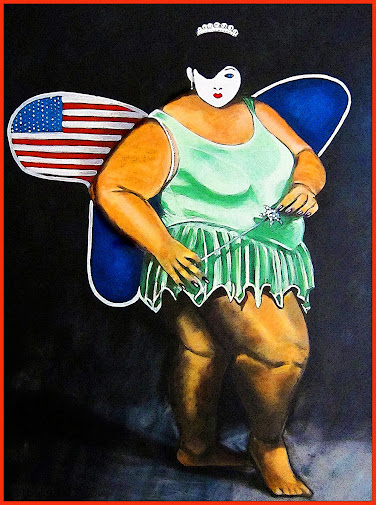-What do you mean? Everybody knows what reality is, he said.
-Are you sure about that? Is it not perhaps possible that
how a person experiences reality varies from person to person?
I responded.
-Nah, it's either reality or it's not, he said and then logged out.
His answer prompted me to do some deep-thinking on the
subject of ''absolutes''.
''Absolutes'' as in a kind of mental ''short-cut'', a belief
that how we view and think about things can be divided
into two categories.
For or against, good or bad, black or white, wrong
or right, true or false, real or fake, etc. etc. etc.
The more I looked into it, the more I realized just
how often I was using absolute terms such as: everyone,
every time, always, never, totally, all, etc. etc.
But why was I doing this?
More research was needed and this is what I have come
up with so far:
I think I was doing it(still do sometimes) in order to
emphasize something, simplify something,
assume rather than research something, stick with the
short-cut mindset rather than putting in the effort
of challenging it.
Keeping an open mind though, I've found to
lead to inquiry and to challenge
the basis, the foundation, on which I've based
my thoughts and views. (mindset)
Thinking in absolutes visa vie(compared to) having an open
mindset for some of us offers less ambiguity, complexity and
uncertainty.
This for some of us may seem preferable, however
research shows that it can also stymie progress,
social interaction and limit a person's potential.
In the words of Donald Rumsfeld:
''There are known knows.
These are things we know that we know.
There are known unknowns. That is to say,
there are things that we know we don't know.
But there are also unknown unknowns.
These are things we don't know that we don't know."
A long time ago I was having a discussion
with my younger sister's boyfriend about music.
He contended that classical music had no feeling,
was boring and only old people was interested in it.
As I at that time was studying music at the University
in Stockholm and regularly went to the Concert Hall
and listened to Classical concerts, I strongly disagreed
with him.
After much back and forth discussing I suggested that
he'd come with me to a concert and judge for himself.
He surprisingly agreed.
As the conductor raised his baton and the symphony
orchestra began to play Mahler's third symphony,
I closed my eyes and allowed the music to envelope my being.
When I opened my eyes again I found my sister's boyfriend
overcome with emotion as he told me:
''You're right, classical music is awesome.''
Later, on the train back home, he looked at
me and with a big smile on his face said:
"So, when's the next concert?''
*
From the moment we are born we
have to learn to face the unknown.
Because all that we now know was
once the unknown.
An ''absolutes'' mindset though it
may make us feel safer also prevents
us from discovering and experiencing
the wonderful, the beautiful, the joyful,
the exciting and the bewildering that
surrounds us when we keep
and open mind.
about the image: Ink and charcoal on paper
title: Bi-polarity



